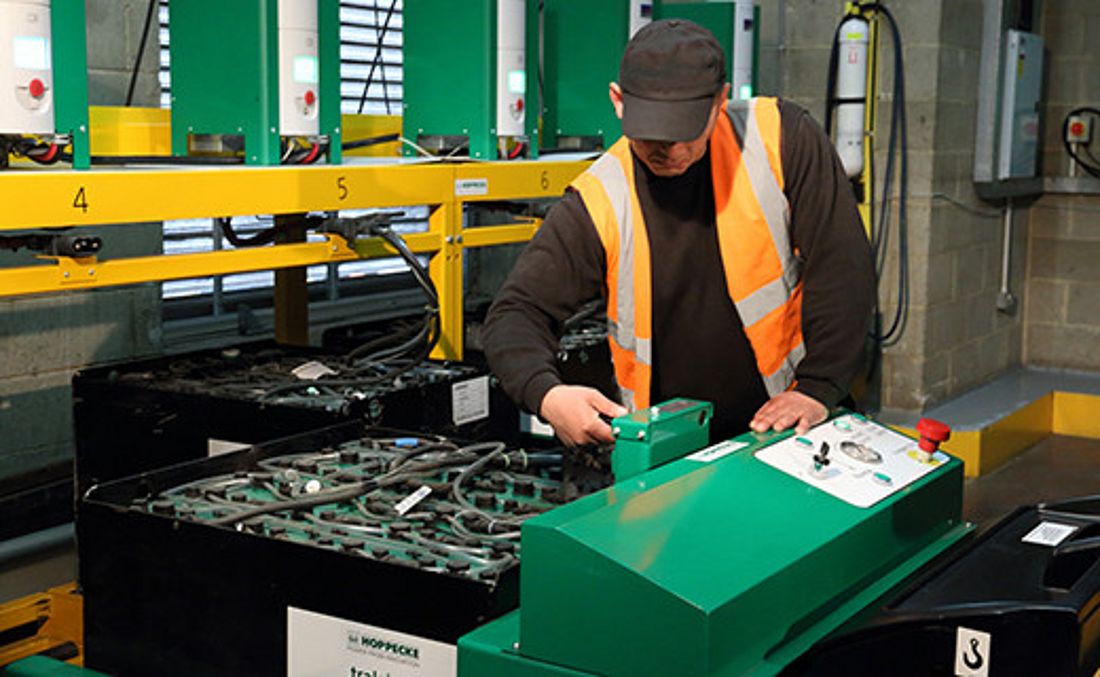If the COVID-19 pandemic has taught us anything, it is how much we rely on efficient supply chains. Retailers forced to close their shops are maximising their online offerings. Supermarkets, convenience stores and pharmacies are working flat out to cope with unprecedented demand for staple foods and medicines. But not all businesses are focussing on ramping up productivity.
In some sectors, such as construction, sites have closed leaving fleets of electric forklifts standing idle. Things could remain that way for quite some time. Under these circumstances, battery care takes on even greater relevance.
Correct procedures
Adopting best practice will keep batteries in peak condition. Carrying out the correct procedures will also help to prevent problems that could prove time-consuming and costly to rectify. When the time comes, it means that businesses will be able to get back up to speed quickly.
Top Ten Tips for Battery Care
Here are our ten top tips to avoid problems and maintain battery condition whilst electric forklifts are standing down:
- Make sure that batteries are fully charged
- Be sure to charge up any spare batteries that are in use
- Once charged, top up batteries with deionised or distilled water to the correct level
- If a battery is left on a truck and not connected to a charger, disconnect the forklift DC plug from the truck
- You can leave batteries connected to chargers on charge – you don’t have to switch off chargers once the charge is complete
- Ensure the mains electricity supply to chargers is maintained
- Do not use any truck with a fully charged battery
- Switch off or disconnect any auxiliary equipment connected to the battery or truck – remove the plug to stop the battery from discharging
- Every 3 months reconnect batteries not left on a truck or connected to a charger and put them through a refreshing charge
- Check the electrolyte level of all batteries, including those which have had a refresh charge, after 3 months
Whilst trucks are standing down until the COVID-19 crisis is over, the danger is that batteries left in a discharged or semi-discharged condition will, eventually, suffer from sulphation of the plates. This could reduce capacity or take considerable time and cost to recover.
Don’t take the risk. If in doubt, contact us now on 01782 667306 for further information or advice on battery care.
